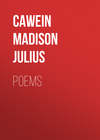Loe raamatut: «Imaginary Interviews», lehekülg 10
There has been altogether too much talk (some of it, we contritely own, has been ours) of the comparative comforts and discomforts of life for the better-to-do in Europe and America. In the demand for Pullman trains between our port of arrival and the end of our journey when we go to the Continent for a much-needed rest, we are apt to forget the fellow-citizens whom we saw across the impassable barrier dividing our first class from them on the steamer, and who will find the second-class German cars quite good enough for them, and better than our day coaches at home. If we cannot remember these, then let us remember those for whom Pullmans are not good enough and who spurn the dust of our summer ways in their automobiles, and leave the parlor-cars to our lower-class vulgarity. Such people take their automobiles to Europe with them, and would not use that possible Pullman train if they found it waiting for them at the port of arrival in Germany. What is the use? It will soon not be an affair of automobiles, but of aeroplanes, at the ports of European arrival, and a Pullman train will look sadly strange and old to the debarking passengers. No one will want to take it, as no one would now want to take a bicycle, or even a "bicycle built for two." These things are all comparative; there is nothing positive, nothing ultimate in the luxuries, the splendors of life. Soon the last word in them takes on a vulgarity of accent; and Distinction turns from them "with sick and scornful looks averse," and listens for the
"airy tongues that syllable men's names
On sands and shores and desert wildernesses."
Simplicity, at the furthest possible remove from all complexity, will be the next word – the word that follows the last, the woman's word.
XVI
QUALITIES WITHOUT DEFECTS
They had got to that point in their walk and talk where the talk might be best carried forward by arresting the walk; and they sat down on a bench of the Ramble in Central Park, and provisionally watched a man feeding a squirrel with peanuts. The squirrel had climbed up the leg of the man's trousers and over the promontory above, and the man was holding very still, flattered by the squirrel's confidence, and anxious not to frighten it away by any untoward movement; if the squirrel had been a child bestowing its first intelligent favors upon him the man could not have been prouder. He was an old fellow, one of many who pamper the corrupt rodents of the Park, and reduce them from their native independence to something like the condition of those pauper wards of the nation on our Indian Reservations, to whom a blurred image of the chase offers itself at stated intervals in the slaughter of the Government's dole of beef-cattle.
The friend to whom this imperfect parallel occurred recalled his thoughts from it and said, with single reference to the man and the squirrel: "I suppose that's an expression of the sort of thing we've been talking about. Kindness to animals is an impulse, isn't it, of the 'natural piety' embracing the fatherhood of God and the brotherhood of man?"
"I don't think it's quite so modern as that formulation," the other friend questioned. "I was thinking it was very eighteenth-century; part of the universal humanitarian movement of the time when the master began to ask himself whether the slave was not also a man and a brother, and the philanthropist visited the frightful prisons of the day and remembered those in bonds as bound with them."
"Yes, you may say that," the first allowed. "But benevolence toward dumb creatures originated very much further back than the eighteenth century. There was St. Francis of Assisi, you know, who preached to the birds, didn't he? and Walter von der Vogelweide, who pensioned them. And several animals – cats, crocodiles, cows, and the like – enjoyed a good deal of consideration among the Egyptians. The serpent used to have a pretty good time as a popular religion. And what about the Stoics? They were rather kind to animals, weren't they? Why should Pliny's Doves have come down to us in mosaic if he cultivated them solely for the sake of broiled squabs? It's true that the modern Roman, before the extension of the S.P.C.A. to his city, used his horse cruelly upon the perfectly unquestionable ground that the poor beast was not a Christian."
"I don't remember about the Stoics exactly," the second friend mused aloud; and the first let this go, though they both understood that very likely he not only did not remember, but had never known. "They had so many virtues that they must have been kind to brutes, but I taste something more Cowperian, more Wordsworthian, than Marcus-Aurelian in our own kindness. These poets taught me, so far as I could learn, not to
'enter on my list of friends the man
Who needlessly sets foot upon a worm,'
and
'Never to mix my pleasure or my pride
With sorrow of the meanest thing that breathes.'"
"Yes, but I don't like giving up the Stoics; we may have to come back to their ground if things keep on going the way they have gone for the last generation. The Stoics had a high ideal of duty; it's hard to see that the Christian ideal is higher, though they taught themselves to be proudly good, and we (if we may still say we when we say Christians) are always trying to teach ourselves to be humbly good."
"What do you mean," the second of the friends demanded, "by coming back to their ground?"
"Why," the first responded, picking up a twig that opportunely dropped at his feet, and getting out his knife to whittle it, "I suppose they were the first agnostics, and we who don't so much deny the Deity as ignore Him – "
"I see," the second answered, sadly. "But aren't you throwing up the sponge for faith rather prematurely? The power of believing has a tremendous vitality. I heard a Catholic once say to a Protestant friend, 'You know the Church has outlived schisms much older than yours.' And inside of Protestantism as well as Catholicism there is a tremendous power of revival. We have seen it often. After an age of unbelief an age of belief is rather certain to follow."
"Well, well, I'm willing. I'm no more agnostic than you are. I should be glad of an age of faith for the rest to my soul, if for no other reason. I was harking back to the Stoics not only because they were good to animals, if they were good, but because they seemed to have the same barren devotion to duty which has survived my faith as well as my creed. But why, if I neither expect happiness nor dread misery, should I still care to do my duty? And I certainly always do."
"What, always?"
"Well, nearly always."
The friends laughed together, and the first said, "What a pity the Gilbertian humor has gone out so; you can't adapt it to a daily need any longer without the risk of not being followed."
The other sighed. "Nearly everything goes out, except duty. If that went out, I don't think I should have much pleasure in life."
"No, you would be dead, without the hope of resurrection. If there is anything comes direct from the Creative Force, from
'La somma sapienza e il primo amore,'
it is the sense of duty, 'the moral law within us,' which Kant divined as unmistakably delivered from God to man. I use the old terminology."
"Don't apologize. It still serves our turn; I don't know that anything else serves it yet. And you make me think of what dear old M.D. C – told me shortly after his wife died. He had wished, when they both owned that the end was near, to suggest some comfort in the hope of another life, to clutch at that straw to save his drowning soul; but she stopped him. She said, 'There is nothing but duty, the duty we have wished to do and tried to do.'"
The friends were silent in the pathos of the fact, and then the first said, "I suppose we all wish to do our duty, even when we don't try or don't try hard enough."
The other conjectured, "Perhaps, after all, it's a question of strength; wickedness is weakness."
"That formula won't always serve; still, it will serve in a good many cases; possibly most. It won't do to preach it, though."
"No, we must cultivate strength of character. I wonder how?"
"Well, your Stoics – "
"My Stoics?"
"Anybody's Stoics – did it by self-denial. When they saw a pleasure coming their way they sidestepped it; they went round the corner, and let it go by while they recruited their energies. Then when they saw a duty coming they stepped out and did it."
"It seems very simple. But aren't you rather cynical?"
"That's what people call one when one puts ethics picturesquely. But perhaps I've rather overdone it about the Stoics. Perhaps they wouldn't have refused to enjoy a pleasure at their own expense, at their cost in some sort of suffering to themselves. They really seem to have invented the Christian ideal of duty."
"And a very good thing. It may be all that will be left of Christianity in the end, if the Christian hope of reward goes as the Christian fear of punishment has gone. It seems to have been all there was of it in the beginning."
The second of the friends said at this, "I don't know that I should go so far as that."
The first returned, "Well, I don't know that I should ask you. I don't know that I go that far myself," he said, and then they laughed together again.
The man who was feeding the squirrel seemed to have exhausted his stock of peanuts, and he went away. After some hesitation the squirrel came toward the two friends and examined their countenances with a beady, greedy eye. He was really glutted with peanuts, and had buried the last where he would forget it, after having packed it down in the ground with his paws.
"No, no," the first of the friends said to the squirrel; "we are on the way back to being Stoics and practising the more self-denying virtues. You won't get any peanuts out of us. For one thing, we haven't got any."
"There's a boy," the second friend dreamily suggested, "down by the boat-house with a basketful."
"But I am teaching this animal self-denial. He will be a nobler squirrel all the rest of his life for not having the peanuts he couldn't get. That's like what I always try to feel in my own case. It's what I call character-building. Get along!"
The squirrel, to which the last words were addressed, considered a moment. Then it got along, after having inspected the whittlings at the feet of the friends to decide whether they were edible.
"I thought," the second of the friends said, "that your humanity included kindness to animals."
"I am acting for this animal's best good. I don't say but that, if the peanut-boy had come by with his basket, I shouldn't have yielded to my natural weakness and given the little brute a paper of them to bury. He seems to have been rather a saving squirrel – when he was gorged."
The mellow sunlight of the November day came down through the tattered foliage, and threw the shadows of the friends on the path where they sat, with their soft hats pulled over their foreheads. They were silent so long that when the second of them resumed their conversation he had to ask, "Where were we?"
"Cultivating force of character in squirrels."
"I thought we had got by that."
"Then we had come round to ourselves again."
"Something like that," the first friend reluctantly allowed.
"What a vicious circle! It seems to me that our first duty, if that's what you mean, is to get rid of ourselves."
"Whom should we have left? Other people? We mustn't pamper their egotism in chastising our own. We must use a great deal of caution in doing our duty. If I really loved that squirrel, if I were truly kind to animals, if I studied their best good, as disagreeable friends say they study ours, I should go after him and give him a hickory-nut that would wear down his teeth as nature intended; civilization is undermining the health of squirrels by feeding them peanuts, which allow their teeth to overgrow."
"That is true. Isn't it doing something of the same sort in other ways for all of us? If I hadn't lost my teeth so long ago, I'm sure I should feel them piercing from one jaw to another in their inordinate development. It's duty that keeps down the overgrowths that luxury incites. By-the-way, what set you thinking so severely about duty this beautiful Sunday morning? The neglected duty of going to church?"
"Ah, I call going to church a pleasure. No, I suppose it was an effect, a reverberation, of the tumult of my struggle to vote for the right man on Tuesday, when I knew that I was throwing my vote away if I did vote for him."
"But you voted for him?"
The first friend nodded.
"Which man was it?"
"What's the use? He was beaten —
'That is all you know or need to know.'"
"Of course he was beaten if it was your duty to vote for him," the second friend mused. "How patient the Creator must be with the result of His counsel to His creatures! He keeps on communing, commanding, if we are to believe Kant. It is His one certain way to affirm and corroborate Himself. Without His perpetual message to the human conscience, He does not recognizably exist; and yet more than half the time His mandate sends us to certain defeat, to certain death. It's enough to make one go in for the other side. Of course, we have to suppose that the same voice which intimates duty to us intimates duty to them?"
"And that they would like to obey it, if they could consistently with other interests and obligations?"
"Yes, they juggle with their sense of it; they pretend that the Voice does not mean exactly what it says. They get out of it that way."
"And the great, vital difference between ourselves and them is that we promptly and explicitly obey it; we don't palter with it in the slightest; 'we don't bandy words with our sovereign,' as Doctor Johnson said. I wonder," the speaker added, with the briskness of one to whom a vivid thought suddenly occurs, "how it would work if one went and did exactly the contrary of what was intimated to the human conscience?"
"That's not a new idea. There are people who habitually do so, or, rather, to whom an inverted moral law is delivered."
"You mean the people who beat you at the polls last Tuesday?"
"No, I mean the people in the asylums, some of them. They are said to hear the voice that bids us do right commanding them to do wrong. 'Thou shalt kill,' they hear it say, 'thou shalt steal, thou shalt bear false witness, thou shalt commit adultery, thou shalt not honor thy father and thy mother,' and so on through the Decalogue, with the inhibition thrown off or put on, as the case may be."
"How very hideous!" the second friend exclaimed. "It's like an emanation from the Pit. I mean the Pit that used to be. It's been abolished."
"And a very good thing. The noises from it went far to drown the voice of God, and bewildered some men so that they did not rightly know what the voice was saying. Now when people hear a voice bidding them do evil, we know what to do with them."
"And you think that the fellows who outvoted you on Tuesday heard the same voice that you heard; and they disobeyed it?"
"Ah, it's hard to say. We haven't got to the bottom of such things yet. Perhaps they disobeyed the voice provisionally, expecting to make a satisfactory explanation later on. Or perhaps they had put their civic consciences in the keeping of others, who gave them an official interpretation of the command, with instructions not to take it literally."
"That's very interesting," the second friend said. "Then it's your idea that no one really prefers to do wrong?"
"Not outside of the asylums. And even there they can plead authority. No, no, no! In a world pretty full of evil there isn't any purely voluntary evil among the sane. When the 'wicked,' as we call them, do wrong, it is provisionally only; they mean to do right presently and make it up with the heavenly powers. As long as an evil-doer lives he means to cease some time to do evil. He may put it off too long, or until he becomes ethically unsound. You know Swedenborg found that the last state of sinners was insanity."
"Dreadful!"
"But I've always thought very few reached that state. There's this curious thing about it all: we are not only ethically prompted by that inner voice, we are æsthetically prompted; it's a matter of taste as well as of conduct, too. The virtues are so clean, the vices so repulsively dirty. Justice is beautifully symmetrical; injustice is so shapeless, so unbalanced. Truth is such a pure line; falsehood is so out of drawing. The iniquities make you uncomfortable. The arts deny them."
The second friend drew a long breath. "Then I don't see why there are so many."
"Well," the first friend suggested, "there seems to be a difficulty. Some say that they have to be employed as antitheses; we can't get on without them, at least at this stage of the proceedings. Perhaps we shall advance so far that we shall be able to use historical or accomplished evil for the contrasts by which we shall know actual good."
"I don't see how you make that out."
"Why, there are already some regions of the globe where the summer does not require the antithesis of winter for its consciousness. Perhaps in the moral world there will yet be a condition in which right shall not need to contrast itself with wrong. We are still meteorologically very imperfect."
"And how do you expect to bring the condition about? By our always doing our duty?"
"Well, we sha'n't by not doing it."
XVII
A WASTED OPPORTUNITY
The Easy Chair saw at once that its friend was full of improving conversation, and it let him begin without the least attempt to stay him; anything of the kind, in fact, would have been a provocation to greater circumstance in him. He said:
"It was Christmas Eve, and I don't know whether he arrived by chance or design at a time when the heart is supposed to be softest and the mind openest. It's a time when, unless you look out, you will believe anything people tell you and do anything they ask you. I must say I was prepossessed by his appearance; he was fair and slender, and he looked about thirty-five years old; and when he said at once that he would not deceive me, but would confess that he was just out of the penitentiary of a neighboring State where he had been serving a two years' sentence, I could have taken him in my arms. Even if he had not pretended that he had the same surname as myself, I should have known him for a brother, and though I suspected that he was wrong in supposing that his surname was at all like mine, I was glad that he had sent it in, and so piqued my curiosity that I had him shown up, instead of having my pampered menial spurn him from my door, as I might if he had said his name was Brown, Jones, or Robinson."
"We dare say you have your self-justification," we put in at this point, "but you must own that it doesn't appear in what you are saying. As a good citizen, with the true interests of the poor at heart, you would certainly have had your pampered menial spurn him from your door. His being of your name, or claiming to be so, had nothing to do with his merit or want of it."
"Oh, I acknowledge that, and I'll own that there was something in his case, as he stated it, that appealed to my fancy even more than his community of surname appealed to my family affection. He said he was a Scotchman, which I am not, and that he had got a job on a cattle-steamer, to work his way back to his native port. The steamer would sail on Monday, and it was now Friday night, and the question which he hesitated, which he intimated, in terms so tacit that I should not call them an expression of it, was how he was to live till Monday."
"He left the calculation entirely to me, which he might not have done if he had known what a poor head I had for figures, and I entered into it with a reluctance which he politely ignored. I had some quite new two-dollar notes in my pocket-book, the crisp sort, which rustle in fiction when people take them out to succor the unfortunate or bribe the dishonest, and I thought I would give him one if I could make it go round for him till his steamer sailed. I was rather sorry for its being fresh, but I had no old, shabby, or dirty notes such as one gives to cases of dire need, you know."
"No, we don't know. We so seldom give paper at all; we prefer to give copper."
"Well, that is right; one ought to give copper if the need is very pressing; if not so pressing, one gives small silver, and so on up. But here was an instance which involved a more extended application of alms. 'You know,' I told him, while I was doing my sum in mental arithmetic, 'there are the Mills hotels, where you can get a bed for twenty-five cents; I don't remember whether they throw in breakfast or not.' I felt a certain squalor in my attitude, which was not relieved by the air of gentle patience with which he listened, my poor namesake, if not kinsman; we were both at least sons of Adam. He looked not only gentle, but refined; I made my reflection that this was probably the effect of being shut up for two years where the winds were not allowed to visit him roughly, and the reflection strengthened me to say, 'I think two dollars will tide you over till Monday.' I can't say whether he thought so, too, but he did not say he did not think so. He left it quite to me, and I found another mathematical difficulty. There were three nights' lodging to be paid for, and then he would have a dollar and a quarter for food. I often spend as much as that on a single lunch, including a quarter to the waiter, and I wouldn't have liked making it pay for three days' board. But I didn't say so; I left the question entirely to him, and he said nothing.
"In fact, he was engaged in searching himself for credentials, first in one pocket, and then in another; but he found nothing better than a pawn-ticket, which he offered me. 'What's this?' I asked. 'My overcoat,' he said, and I noted that he had borrowed a dollar and a half on it. I did not like that; it seemed to me that he was taking unfair advantage of me, and I said, 'Oh, I think you can get along without your overcoat.' I'm glad to think now that it hadn't begun to snow yet, and that I had no prescience of the blizzard – what the papers fondly called the Baby Blizzard (such a pretty fancy of theirs!) – which was to begin the next afternoon, wasn't making the faintest threat from the moonlit sky then. He said, 'It's rather cold,' but I ignored his position. At the same time, I gave him a quarter."
"That was magnificent, but it was not political economy," we commented. "You should have held to your irrefutable argument that he could get along without his overcoat. You should have told him that he would not need it on shipboard."
"Well, do you know," our friend said, "I really did tell him something like that, and it didn't seem to convince him, though it made me ashamed. I suppose I was thinking how he could keep close to the reading-room fire, and I did not trouble to realize that he would not be asked to draw up his chair when he came in from looking after the cattle."
"It would have been an idle compliment, anyway," we said. "You can't draw up the reading-room chairs on shipboard; they're riveted down."
"I remembered afterward. But still I was determined not to take his overcoat out of pawn, and he must have seen it in my eye. He put back his pawn-ticket, and did not try to produce any other credentials. I had noticed that the ticket did not bear the surname we enjoyed in common; I said to myself that the name of Smith, which it did bear, must be the euphemism of many who didn't wish to identify themselves with their poverty even to a pawnbroker. But I said to him, 'Here!' and I pulled open my table drawer, and took from it a small envelope full of English coins, which I had been left stranded with on several returns from Europe; the inhuman stewards had failed to relieve me of them; and as I always vow, when I have got through our customs, that I will never go to Europe again, I had often wondered what I should do with those coins. I now took out the largest and handsomest of them: 'Do you know what that is?' 'Yes,' he said; 'it's two shillings and sixpence – what we call a half-crown.' His promptness restored my faith in him; I saw that he must be what he said; undoubtedly he had been in the penitentiary; very likely our name was the same; an emotion of kinship stirred in my heart. 'Here!' I said, and I handed him the coin; it did not seem so bad as giving him more American money. 'They can change that on the ship for you. I guess you can manage now till Monday,' and my confidence in Providence diffused such a genial warmth through my steam-heated apartment that I forgot all about his overcoat. I wish I could forget about it now."
We felt that we ought to say something to comfort a man who owned his excess of beneficence. "Oh, you mustn't mind giving him so much money. We can't always remember our duty to cut the unfortunate as close as we ought. Another time you will do better. Come! Cheer up!"
Our friend did not seem entirely consoled by our amiability. In fact, he seemed not to notice it. He heaved a great sigh in resuming: "He appeared to think I was hinting that it was time for him to go, for he got up from the lounge where I had thoughtlessly had the decency to make him sit down, and went out into the hall, thanking me as I followed him to the door. I was sorry to let him go; he had interested me somehow beyond anything particularly appealing in his personality; in fact, his personality was rather null than otherwise, as far as that asserted any claim; such a mere man and brother! Before he put his hand on my door-knob a belated curiosity stirred in me, which I tried, as delicately as I could, to appease. 'Was your trouble something about the' – I was going to say the ladies, but that seemed too mawkish, and I boldly outed with – 'women?' 'Oh no,' he said, meekly; 'it was just cloth, a piece of cloth,' 'Breaking and entering?' I led on. 'Well, not exactly, but – it came to grand larceny,' and I might have fancied a touch of mounting self-respect in his confession of a considerable offence.
"I didn't know exactly what to say, so I let myself off with a little philosophy: 'Well, you see, it didn't pay, exactly,' 'Oh no,' he said, sadly enough, and he went out."
Our friend was silent at this point, and we felt that we ought to improve the occasion in his behalf. "Well, there you lost a great opportunity. You ought to have rubbed it in. You ought to have made him reflect upon the utter folly of his crime. You ought to have made him realize that for a ridiculous value of forty, or fifty, or seventy-five dollars, he had risked the loss of his liberty for two years, and not only his liberty, but his labor, for he had come out of the penitentiary after two years of hard work as destitute as he went in; he had not even the piece of cloth to show for it all. Yes, you lost a great opportunity."
Our friend rose from the dejected posture in which he had been sitting, and blazed out – we have no milder word for it – blazed out in a sort of fiery torrent which made us recoil: "Yes, I lost that great opportunity, and I lost a greater still. I lost the opportunity of telling that miserable man that, thief for thief, and robber for robber, the State which had imprisoned him for two years, and then cast him out again without a cent of pay for the wages he had been earning all that dreadful time, was a worse thief and a worse robber than he! I ought to have told him that in so far as he had been cheated of his wages by the law he was the victim, the martyr of an atrocious survival of barbarism. Oh, I have thought of it since with shame and sorrow! I was sending him out into the cold that was gathering for the Baby Blizzard without the hope of his overcoat, but since then I have comforted myself by considering how small my crime was compared with that of the State which had thrown him destitute upon the world after the two years' labor it had stolen from him. At the lowest rate of wages for unskilled labor, it owed him at least a thousand dollars, or, with half subtracted for board and lodging, five hundred. It was his delinquent debtor in that sum, and it had let him loose to prey upon society in my person because it had defrauded him of the money he had earned."
"But, our dear friend!" we entreated, "don't you realize that this theft, this robbery, this fraud, as you call it, was part of the sanative punishment which the State had inflicted upon him?"
"And you don't think two years' prison, two years' slavery, was sanative enough without the denial of his just compensation?"
We perceived that it would be useless to argue with a man in this truculent mood, and we silently forbore to urge that the vision of destitution which the criminal must have before his eyes, advancing hand in hand with liberty to meet him at the end of his term when his prison gates opened into the world which would not feed, or shelter, or clothe, or in any wise employ him, would be a powerful deterrent from future crime, and act as one of the most efficient agencies of virtue which the ingenuity of the law has ever invented. But our silence did not wholly avail us, for our poor misguided friend went on to say:
"Suppose he had a wife and children – he may have had several of both, for all I know – dependent on him, would it have been particularly sanative for them to be deprived of his earnings, too?"
"We cannot answer these sophistries," we were exasperated into replying. "All that we can say is that anything else – anything like what you call justice to the criminal, the prisoner – would disrupt society," and we felt that disrupt was a word which must carry conviction to the densest understanding. It really appeared to do so in this case, for our friend went away without more words, leaving behind him a manuscript, which we mentally rejected, while seeing our way to use the material in it for the present essay; it is the well-known custom of editors to employ in this way the ideas of rejected contributors.



















